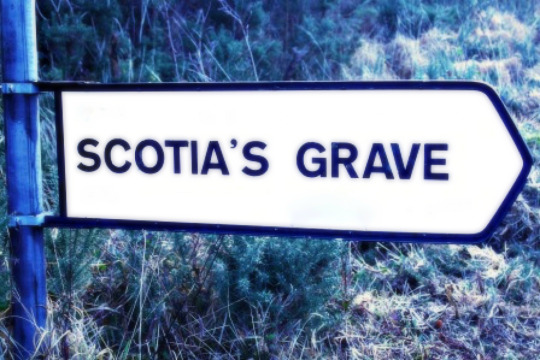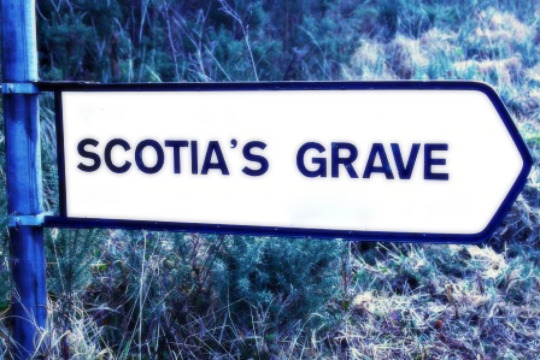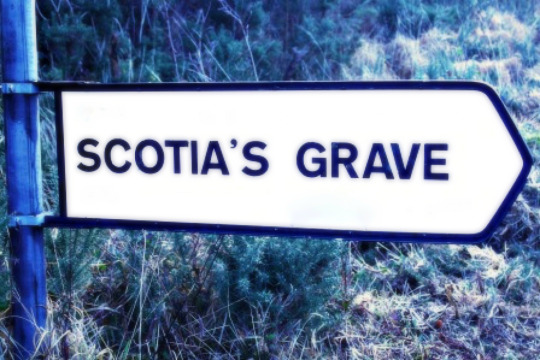#Gaythelos
Explore tagged Tumblr posts
Text
Queen Scotia
Scota appears in the Irish chronicle Book of Leinster (containing a redaction of the Lebor Gabála Érenn). According to Irish Folklore and Mythology, the battle of Sliabh Mish was fought in this glen above the town of Tralee, where the Celtic Milesians defeated the Tuatha Dé Danann but Scotia, the Queen of the Milesians died in battle while pregnant as she attempted to jump a bank on horseback.…

View On WordPress
#&039;Kingdom of the Ark&039;#Book of Leinster#Co. Kerry#Egypt#Gaythelos#Ireland#Lebor Gabála Érenn#Lorraine Evans#Milesians#Pharaoh#Picts#Queen Scotia#Queen Scotia&039;s Grave Walk#Scota#Scotia&039;s Glen#Scotland#Scotti#Scythian warrior#Sliabh Mish#Spain#Tralee#Tuatha Dé Danann
9 notes
·
View notes
Text
Scota was really Ankhesenamun, daughter of Akhenaton and Nefertiti, and wife of Tutankhamen.
He also finds that far from being a Greek king, Gaythelos was a pharaoh himself – Aye.
Little is known of Aye, although Ellis speculates that he was the father of Tutankhamen and married Ankhesenamun after his son's death. Aye ruled only briefly before religious struggle brought him into conflict with the Egyptian people and he and his court were forced into exile.
0 notes
Text
Unveiling the Mysteries: Fascinating Queen Scotia Facts

Introduction:
In the annals of Scottish history, one name stands out with an aura of mystery and significance: Queen Scotia. Despite being shrouded in legend and folklore, Queen Scotia Facts influence on Scottish culture and heritage is undeniable. This enigmatic figure has captivated the imaginations of many, prompting exploration into her origins and the impact she had on the Scottish people. In this article, we will embark on a journey to uncover the intriguing facts and stories surrounding Queen Scotia, shedding light on her legacy and the lasting imprint she left on the Scottish identity.
The Origins of Queen Scotia:
Queen Scotia is believed to be an ancient Egyptian princess who, according to legend, fled her homeland after the fall of the Egyptian empire. Some accounts suggest that she was the daughter of an Egyptian pharaoh, while others claim she was a member of the royal court. The tales tell of her journey across the Mediterranean Sea, accompanied by a fleet of ships, until she finally arrived in Scotland.
Mother of a Nation:
One of the most enduring legends surrounding Queen Scotia is her role as the mother of the Scottish nation. It is said that she married the Scottish king Gaythelos and bore him several children, the most famous being a son named Hiberus, who would go on to give his name to Ireland (Hibernia). This lineage is considered the foundation of the Scottish and Irish peoples, linking their histories and cultures.
Connections to the Stone of Destiny:
Another fascinating aspect of Princess Scotia legacy is her connection to the Stone of Destiny, also known as the Stone of Scone. According to lore, the stone was brought to Scotland by Queen Scotia herself and was later used in the coronation of Scottish kings. The stone's significance goes beyond symbolism, as it has been associated with Scottish monarchs for centuries, including those of the current British monarchy.
Influence on Scottish Culture:
Queen Scotia's mythical persona has left an indelible mark on Scottish culture and heritage. Her story has been woven into Scottish folklore, inspiring countless tales, poems, and songs. The image of a powerful queen from a distant land, seeking refuge and establishing a new dynasty, embodies the resilience and spirit of the Scottish people. Queen Scotia has become a symbol of national pride and identity, reminding Scots of their ancient roots and historical connections.
Controversies and Debates:
While Queen Scotia of Egypt has captivated imaginations, it is important to acknowledge the controversies and debates surrounding her existence. Some historians argue that the legends surrounding Queen Scotia are purely mythical, lacking historical evidence to support their claims. They view her as a figure born out of ancient storytelling rather than a real historical personality. However, others argue that dismissing her as purely mythical undermines the cultural significance she holds for many Scots. They believe that her story, whether based in historical fact or not, has shaped the Scottish identity and should be acknowledged as an important part of the nation's heritage.
Conclusion:
Queen Scotia may remain an enigma of Scottish history, her true origins and existence still debated by scholars. However, her impact on Scottish culture and the national psyche cannot be denied. Whether she was an ancient Egyptian princess who found sanctuary in Scotland or simply a legendary figure, Queen Scotia's legacy endures. Her story serves as a testament to the enduring power of myth and folklore in shaping a nation's identity, and her name continues to evoke a sense of pride and fascination among the Scottish people
0 notes
Text
The escape of an Egyptian princess provides the underpinnings of a trademark Cussler novel
Colorado News
Dirk Cussler is the co-author, with his father Clive, of seven previous Dirk Pitt adventures: “Black Wind,” “Treasure of Khan,” “Arctic Drift,” “Crescent Dawn,” “Poseidon’s Arrow,” “Havana Storm,” and “Odessa Sea.” Cussler serves as president of the National Underwater and Marine Agency (NUMA), a non-profit organization devoted to shipwreck discovery and preservation of our maritime history.
The following is an excerpt from “Celtic Empire.”
UNDERWRITTEN BY
Each week, The Colorado Sun and Colorado Humanities & Center For The Book feature an excerpt from a Colorado book and an interview with the author. Explore the SunLit archives at coloradosun.com/sunlit.
2020 Colorado Book Awards winner for Mystery
Memphis, Egypt 1334 B.C.E.
Wails of grief drifted over the city like a black aria. The mud brick dwellings burst with anguish, as the sorrow swirled into the night desert. But the winds ferried more than just the cries of mourning.
They carried the stench of death.
A mysterious scourge had descended upon the land, striking at nearly every household. The young were most afflicted, but not exclusively. The claws of death had grasped even the royal family, snatching the Pharaoh himself in their cold grip.
Crouched in the shadows of the Temple of Aten, a young woman tried to block the din and odor. As the moon slipped from behind a cloud, casting its glow over the landscape, she rubbed a heavy gold amulet on her chest and listened for sounds of movement. The rustle of leather soles on stone pricked her ears, and she turned to a figure running toward her across the temple’s front portico.
Her husband, Gaythelos, was tall, with dark curly hair and broad shoulders. His skin was damp in the hot night air as he grasped her hand and pulled her to her feet. “The way to the river is clear,” he said in a low voice.
She gazed beyond him. “Where are the others?”
“Securing the boats. Come, Meritaten, let us delay no further.”
She turned to the shadows behind her and nodded. Three men emerged from along the temple wall, armed with spears and heavy khopesh swords. As she followed her husband, they took up a triangular defensive position around her.
Co-authors Dirk and Clive Cussler.
Gaythelos led them away from the temple entrance and down a side street, their sandals kicking up dust. Despite the late hour, many houses showed the gleam of burning oil lamps through cracks in their shutters. The group moved at a quick pace, keeping silent as they crossed the former capital city. As they jogged around a corner, one of the armed men kicked away a stray dog that approached for a handout.
The road sloped gently toward the riverside, where rows of small merchant boats were tied to a dock. As they moved along the bank, two men arose from the reeds. They wore long, gray beards and were dressed in shabby linens.
The escorts raised their spears and sprang forward.
“Guards, cease!” Meritaten cried.
The armed men froze.
She stepped past them and greeted the two men. “Osarseph, Ahrwn, what are you doing here? Why have you not departed?”
The younger of the two men stepped forward. His eyes held a determined look, shrouded by a weathered face. “Meritaten,” he said, “we could not taste freedom without offering you our thanks. Your influence with Pharaoh was instrumental in his edict. I am saddened for you to learn of his passing at Amarna.”
“My influence was debatable,” she said. “What is not questioned is that Pharaoh’s high priests are now in control of our lands — and have blamed the royal family for the sorrows brought upon Egypt.”
“You are guilty only of having an open heart for the downtrodden.” He slipped a goatskin bag from around his neck and passed it to her. “You saved us from the tainted waters of the Nile. I pray it is now time to save yourself.”
“You took heed where Pharaoh did not. It is Gaythelos you should thank, not me.” She nodded toward her husband. “He knew the power of the Apium.”
Osarseph turned and bowed to the man. “You will join us?” He waved an arm toward the river. On the opposite bank, the glow from a thousand campfires dotted the horizon.
“No,” Meritaten said. “We will cast our fate to the sea.”
The old man nodded, then knelt before her. “My brother and I shall carry your deeds close to our hearts. May you live in peace for the life of the stars.”
“And you as well, Osarseph. Goodbye.”
The two men climbed aboard a small raft, pushed into the dark river, and paddled for the opposite bank.
“Perhaps we should join them?” she whispered.
“The desert brings nothing but hardship, my love,” Gaythelos said. “ More hospitable lands await. Let us delay no longer.”
He led the company along the shoreline, turning away from the vessels at the town’s landing to a trio of boats hidden in the reeds downriver. As they approached, they were challenged by armed sentries, who then guided them aboard one of the boats.
Meritaten and Gaythelos took a seat on a bench beneath the lone mast as the boat was released from its mooring. Crewmen rowed away from the bank, following the other two vessels to the Nile’s center.
Meritaten cast an uneasy eye about the boat. It was less than 100 feet long and open decked, with a rising stem and stern. Pots and baskets filled with provisions littered the deck. Soldiers lined the gunwales, most rowing with short oars. The other two boats, veteran merchant ships that had crossed the Mediterranean, sat equally low in the water.
A square mainsail was partially raised and rigged fore-and-aft for maneuvering as the boats navigated north, propelled by the current. Small oil lamps dangled off the prows, providing faint light to the dark waters ahead. Leaving the city of Memphis in their wake, the boats sailed silently, except for the slap of water against their hulls and the dip of oars into the river.
Twelve miles downriver, murmurs rippled through the boats. Ahead, a string of lanterns appeared on a vessel moored in the center of the river.
“Celtic Empire” by Clive & Dirk Cussler.
Meritaten squinted at the illuminated barge. Ropes stretched from it to either shoreline for use by a ferry during daylight, while the barge served as a tax station for passing merchant boats. But shouts of alarm from the barge revealed it was prepared this night for more than tax duty.
“Extinguish the lantern!” The captain of Meritaten’s boat, a gruff man with a clean-shaven head, looked to the other boats.
Too late. All three had been seen. A team of archers assembled on the barge and let loose a barrage of arrows.
Gaythelos shoved Meritaten to the deck. A crewman screamed and grabbed his neck where an arrow had struck.
“Stay down!” As two guards stood watch alongside, Gaythelos dragged a sack of grain across the deck and covered his wife with it.
Under the sack, she could only listen to the battle. The three boats turned to the far shoreline, putting as much distance as they could between themselves and the barge. The first boat approached the rope line, and men with swords leaned over the bow to sever it. Several were picked off by the archers, but others sliced the barrier free.
The three boats continued downriver, but the barge released a small chase vessel, filled with warriors and more archers. Putting oars to water, the pursuit craft made for the closest merchant vessel, the one carrying Meritaten and Gaythelos. It closed the distance quickly and pulled alongside. Its warriors swarmed over the side, expecting little resistance.
Gaythelos and the armed contingent sprang from the shadows, thrusting spears and striking their attackers with bronze swords. Hand-to-hand fighting spilled across the deck as every crewman fought to repel the boarders. Archers on the attack boat fired arrows into the melee, killing warriors on both sides. Bodies of the dead splashed into the Nile. The battle raged back and forth until the attackers seemed to gain the upper hand. Sensing defeat, Meritaten rose from her hiding place and picked up a dead warrior’s sword.
“Seize victory!” she implored, plunging the blade into an attacking boarder.
The defenders rallied at the sight. Charging the attackers, they drove them to the stern, killing them without mercy. The attack boat came next. The princess’ raging swordsmen jumped into the vessel and massacred the remaining archers, then shoved the boat to drift away with its cargo of the dead.
Already registered? Log in here to hide these messages.
Stay on top of it all.
Let us bring Colorado’s best journalism to you. Get our free newsletters.
UNDERWRITTEN BY TOBACCO-FREE KIDS ACTION FUND
OUR UNDERWRITERS SUPPORT JOURNALISM. BECOME ONE.
Meritaten stepped to the bow in search of her husband. The deck was soaked in blood; dead and wounded men lay everywhere. Gaythelos appeared, holding a bloody dagger. She wrapped her arms around him.
“We are safe now,” he said. “You have led us to victory.” He turned to the captain, who sat at the steering oar, an arrow protruding from his shoulder. “Isn’t that true?”
The man nodded. “There will be no more obstacles. We are nearly to the delta — and multiple paths to the sea. By morning, Egypt will be in our wake.”
The armada sailed through the night, squeezing down an eastern branch of the Nile delta bordered by fields of ripe barley. The Mediterranean soon beckoned, and the three boats glided into the turquoise sea. They kept their distance from an approaching line of trading ships from the Levant as the sun brightened the morning sky
Meritaten sat with Gaythelos as the Egyptian shoreline drifted away behind them. She clutched the goatskin bag tight to her chest, contemplating her future. While she had saved untold lives, she had also sacrificed everything she held dear.
Rising to her feet, she stepped to the ship’s bow with a newfound sense of destiny. Facing the horizon across the open sea, she gazed toward the unknown world that beckoned her.
— Buy “Celtic Empire” at BookBar. — Read an interview with Dirk Cussler.
Our articles are free to read, but not free to report
Support local journalism around the state. Become a member of The Colorado Sun today!
$5/month
$20/month
$100/month
One-time Contribution
The latest from The Sun
The escape of an Egyptian princess provides the underpinnings of a trademark Cussler novel
In typical Cussler fashion, “Celtic Empire” begins with a historical premise — and then takes off
With John Hickenlooper on defensive, mysterious group launches big-money ad attacking Andrew Romanoff
Colorado students need a back-to-school test to get back on course after coronavirus, advocates say
Colorado spared more budget cuts for now, but an additional $1 billion in reductions looms on 2021 horizon
from https://ift.tt/2YRuZ5P https://ift.tt/3dkdv7c
0 notes
Text
Queen Scotia
Scota appears in the Irish chronicle Book of Leinster (containing a redaction of the Lebor Gabála Érenn). According to Irish Folklore and Mythology, the battle of Sliabh Mish was fought in this glen above the town of Tralee, where the Celtic Milesians defeated the Tuatha Dé Danann but Scotia, the Queen of the Milesians died in battle while pregnant as she attempted to jump a bank on horseback.…

View On WordPress
#&039;Kingdom of the Ark&039;#Book of Leinster#Co. Kerry#Egypt#Gaythelos#Ireland#Lebor Gabála Érenn#Lorraine Evans#Milesians#Pharaoh#Picts#Queen Scotia#Queen Scotia&039;s Grave Walk#Scota#Scotia&039;s Glen#Scotland#Scotti#Scythian warrior#Sliabh Mish#Spain#Tralee#Tuatha Dé Danann
9 notes
·
View notes
Text
Queen Scotia
Scota appears in the Irish chronicle Book of Leinster (containing a redaction of the Lebor Gabála Érenn). According to Irish Folklore and Mythology, the battle of Sliabh Mish was fought in this glen above the town of Tralee, where the Celtic Milesians defeated the Tuatha Dé Danann but Scotia, the Queen of the Milesians died in battle while pregnant as she attempted to jump a bank on horseback.…

View On WordPress
#&039;Kingdom of the Ark&039;#Book of Leinster#Co. Kerry#Egypt#Gaythelos#Ireland#Lebor Gabála Érenn#Lorraine Evans#Milesians#Pharaoh#Picts#Queen Scotia#Queen Scotia&039;s Grave Walk#Scota#Scotia&039;s Glen#Scotland#Scotti#Scythian warrior#Sliabh Mish#Spain#Tralee#Tuatha Dé Danann
8 notes
·
View notes
Text
Queen Scotia
Scota appears in the Irish chronicle Book of Leinster (containing a redaction of the Lebor Gabála Érenn). According to Irish Folklore and Mythology, the battle of Sliabh Mish was fought in this glen above the town of Tralee, where the Celtic Milesians defeated the Tuatha Dé Danann but Scotia, the Queen of the Milesians died in battle while pregnant as she attempted to jump a bank on horseback.…

View On WordPress
#&039;Kingdom of the Ark&039;#Book of Leinster#Co. Kerry#Egypt#Gaythelos#Ireland#Lebor Gabála Érenn#Lorraine Evans#Milesians#Pharaoh#Picts#Queen Scotia#Queen Scotia&039;s Grave Walk#Scota#Scotia&039;s Glen#Scotland#Scotti#Scythian warrior#Sliabh Mish#Spain#Tralee#Tuatha Dé Danann
5 notes
·
View notes
Text
Queen Scotia
Scota appears in the Irish chronicle Book of Leinster (containing a redaction of the Lebor Gabála Érenn). According to Irish Folklore and Mythology, the battle of Sliabh Mish was fought in this glen above the town of Tralee, where the Celtic Milesians defeated the Tuatha Dé Danann but Scotia, the Queen of the Milesians died in battle while pregnant as she attempted to jump a bank on horseback.…
View On WordPress
#&039;Kingdom of the Ark&039;#Book of Leinster#Co. Kerry#Egypt#Gaythelos#Ireland#Lebor Gabála Érenn#Lorraine Evans#Milesians#Pharaoh#Picts#Queen Scotia#Queen Scotia&039;s Grave Walk#Scota#Scotia&039;s Glen#Scotland#Scotti#Scythian warrior#Sliabh Mish#Spain#Tralee#Tuatha Dé Danann
6 notes
·
View notes
Text
Queen Scotia
Scota appears in the Irish chronicle Book of Leinster (containing a redaction of the Lebor Gabála Érenn). According to Irish Folklore and Mythology, the battle of Sliabh Mish was fought in this glen above the town of Tralee, where the Celtic Milesians defeated the Tuatha Dé Danann but Scotia, the Queen of the Milesians died in battle while pregnant as she attempted to jump a bank on horseback.…
View On WordPress
#&039;Kingdom of the Ark&039;#Book of Leinster#Co. Kerry#Egypt#Gaythelos#Ireland#Lebor Gabála Érenn#Lorraine Evans#Milesians#Pharaoh#Picts#Queen Scotia#Queen Scotia&039;s Grave Walk#Scota#Scotia&039;s Glen#Scotland#Scotti#Scythian warrior#Sliabh Mish#Spain#Tralee#Tuatha Dé Danann
8 notes
·
View notes
Text
Queen Scotia – From Egypt to Ireland
Queen Scotia – From Egypt to Ireland
Scota appears in the Irish chronicle Book of Leinster (containing a redaction of the Lebor Gabála Érenn). According to Irish Folklore and Mythology, the battle of Sliabh Mish was fought in this glen above the town of Tralee, where the Celtic Milesians defeated the Tuatha Dé Danann but Scotia, the Queen of the Milesians died in battle while pregnant as she attempted to jump a bank on horseback.…
View On WordPress
#&039;Kingdom of the Ark&039;#Book of Leinster#Co. Kerry#Egypt#Gaythelos#Ireland#Lebor Gabála Érenn#Lorraine Evans#Milesians#Pharaoh#Picts#Queen Scotia#Queen Scotia&039;s Grave Walk#Scota#Scotia&039;s Glen#Scotland#Scotti#Scythian warrior#Sliabh Mish#Spain#Tralee#Tuatha Dé Danann
2 notes
·
View notes
Text
Queen Scotia
Scota appears in the Irish chronicle Book of Leinster (containing a redaction of the Lebor Gabála Érenn). According to Irish Folklore and Mythology, the battle of Sliabh Mish was fought in this glen above the town of Tralee, where the Celtic Milesians defeated the Tuatha Dé Danann but Scotia, the Queen of the Milesians died in battle while pregnant as she attempted to jump a bank on horseback.…
View On WordPress
#&039;Kingdom of the Ark&039;#Book of Leinster#Co. Kerry#Egypt#Gaythelos#Ireland#Lebor Gabála Érenn#Lorraine Evans#Milesians#Pharaoh#Picts#Queen Scotia#Queen Scotia&039;s Grave Walk#Scota#Scotia&039;s Glen#Scotland#Scotti#Scythian warrior#Sliabh Mish#Spain#Tralee#Tuatha Dé Danann
5 notes
·
View notes